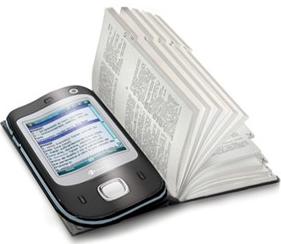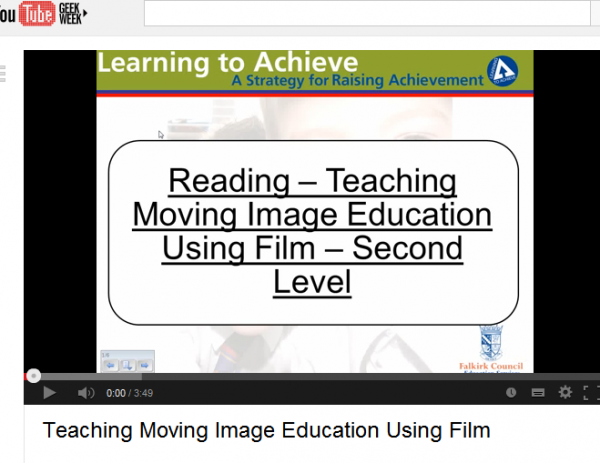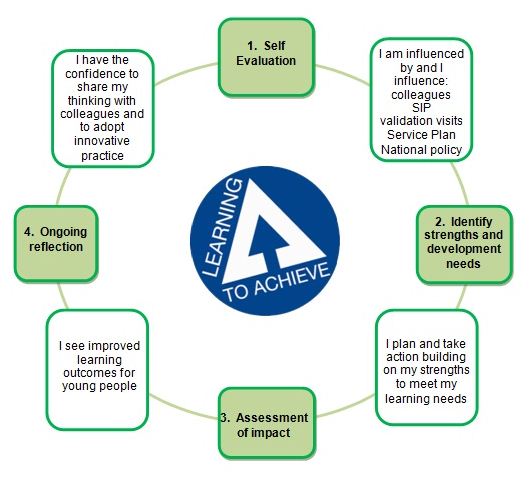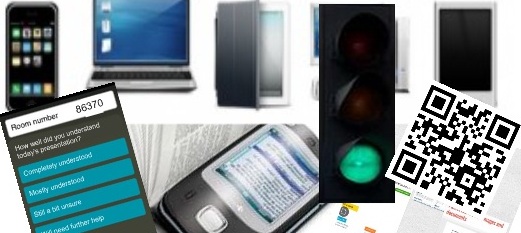 Malcolm Wilson, ICT Curriculum Development Officer in the Curriculum Support team of Falkirk Council Education Services, provided support sessions for Primary ICT Co-ordinators, with a focus on mobile devices for schools at the beginning stages of looking at how to use them in learning and teaching. How mobile devices can be used to make a difference to learning and teaching, the practical implications of this in a school, and how to overcome barriers to successful integration, are issues around which schools embarking on the journey exploring using mobile devices consider.
Malcolm Wilson, ICT Curriculum Development Officer in the Curriculum Support team of Falkirk Council Education Services, provided support sessions for Primary ICT Co-ordinators, with a focus on mobile devices for schools at the beginning stages of looking at how to use them in learning and teaching. How mobile devices can be used to make a difference to learning and teaching, the practical implications of this in a school, and how to overcome barriers to successful integration, are issues around which schools embarking on the journey exploring using mobile devices consider.
This post describes just a few resources which may be useful to help schools at the beginning of the journey towards considering using mobile devices to support learning and teaching.
AUP
When schools have wireless, which can be accessed by pupils on their own device, and pupils are signed up to an Acceptable Use Policy which sets out responsibilities, they can then consider how best to to incorporate personally-owned mobile devices in learning and teaching.
 Falkirk Council Education Services provides educational establishments with an Acceptable Use Policy which takes account of mobile devices and social media. This is available here: https://blogs.glowscotland.org.uk/fa/mobiledevices/documents/
Falkirk Council Education Services provides educational establishments with an Acceptable Use Policy which takes account of mobile devices and social media. This is available here: https://blogs.glowscotland.org.uk/fa/mobiledevices/documents/
Device Neutral Assignments
 Device Neutral Assigments are tasks which let pupils choose tool according to device available. With multiple types of devices in a classroom (where pupils bring their own device), rather than the tool as the focus for learning, instead the tool should be chosen to suit the intended learning – and may be chosen by teacher or pupil to best suit task to support learning or demonstrate understanding of the learning – the learning activity does not presume a specific tool will be used. The link below provides further description of device-neutral assignments and provides links to tools for any learning activity (such as creating a video, note-taking, creating a video, creating audio, creating an assessment, etc) with suggested example apps/software/online tool specific to each device https://blogs.glowscotland.org.uk/fa/mobiledevices/device-neutral-assignment/
Device Neutral Assigments are tasks which let pupils choose tool according to device available. With multiple types of devices in a classroom (where pupils bring their own device), rather than the tool as the focus for learning, instead the tool should be chosen to suit the intended learning – and may be chosen by teacher or pupil to best suit task to support learning or demonstrate understanding of the learning – the learning activity does not presume a specific tool will be used. The link below provides further description of device-neutral assignments and provides links to tools for any learning activity (such as creating a video, note-taking, creating a video, creating audio, creating an assessment, etc) with suggested example apps/software/online tool specific to each device https://blogs.glowscotland.org.uk/fa/mobiledevices/device-neutral-assignment/
QR Codes
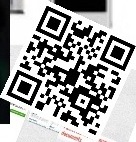 Quick Response codes are square barcodes which, with a mobile device app, turn the mobile device camera into a barcode reader, to then provide a very quick way to access weblinks, video, images or text. http://goo.gl/1nnb2
Quick Response codes are square barcodes which, with a mobile device app, turn the mobile device camera into a barcode reader, to then provide a very quick way to access weblinks, video, images or text. http://goo.gl/1nnb2
Socrative
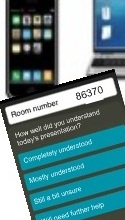 Socrative is a free classroom response system works on any Internet-connected device. This lets teachers set up questions for responses by pupils on any device. Pupils go to http://m.socrative.com & enter the teacher’s classroom number. http://goo.gl/w7t16. Socrative has a host of resources freely shared by other teachers worldwide.
Socrative is a free classroom response system works on any Internet-connected device. This lets teachers set up questions for responses by pupils on any device. Pupils go to http://m.socrative.com & enter the teacher’s classroom number. http://goo.gl/w7t16. Socrative has a host of resources freely shared by other teachers worldwide.
Padlet
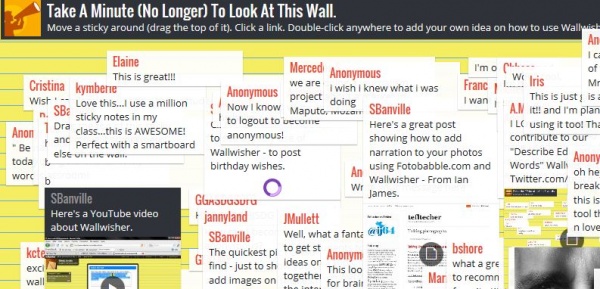 Padlet provides a classroom-friendly feedback discussion area online , private to the classroom, which can provide a useful tool in formative assessment in providing an online feedback tool which works on any Internet-connected device.
Padlet provides a classroom-friendly feedback discussion area online , private to the classroom, which can provide a useful tool in formative assessment in providing an online feedback tool which works on any Internet-connected device.
Managing Devices in the Classroom
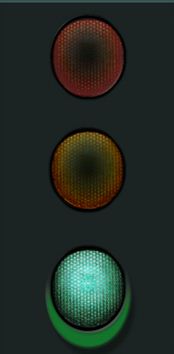 The Traffic Light Approach is one way teachers have found useful to support classroom management of mobile devices. Using this approach the teacher determines the level of use, or not, of mobile devices, at any given time in classroom
The Traffic Light Approach is one way teachers have found useful to support classroom management of mobile devices. Using this approach the teacher determines the level of use, or not, of mobile devices, at any given time in classroom
Resources to support moving from One to Many to 1:1
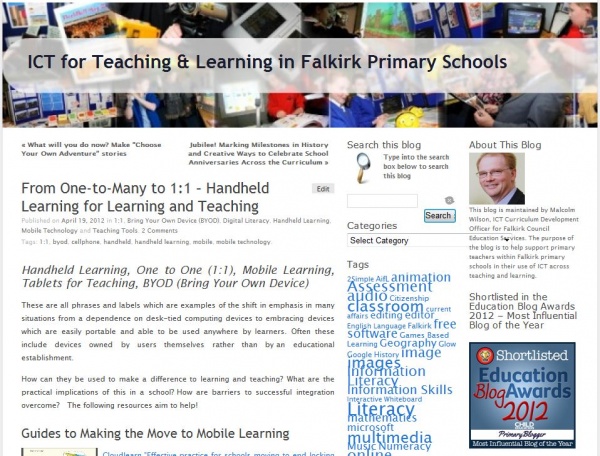 From One to Many to 1:1 provides extensive links to resources which support the shift in emphasis in many situations from a dependence on desk-tied computing devices to embracing devices which are easily portable and able to be used anywhere by learners. Often these include devices owned by users themselves rather than by an educational establishment. The phrases often used to describe this form of application include: Handheld Learning, One to One (1:1), Mobile Learning, Tablets for Teaching, and BYOD (Bring Your Own Device).
From One to Many to 1:1 provides extensive links to resources which support the shift in emphasis in many situations from a dependence on desk-tied computing devices to embracing devices which are easily portable and able to be used anywhere by learners. Often these include devices owned by users themselves rather than by an educational establishment. The phrases often used to describe this form of application include: Handheld Learning, One to One (1:1), Mobile Learning, Tablets for Teaching, and BYOD (Bring Your Own Device).


